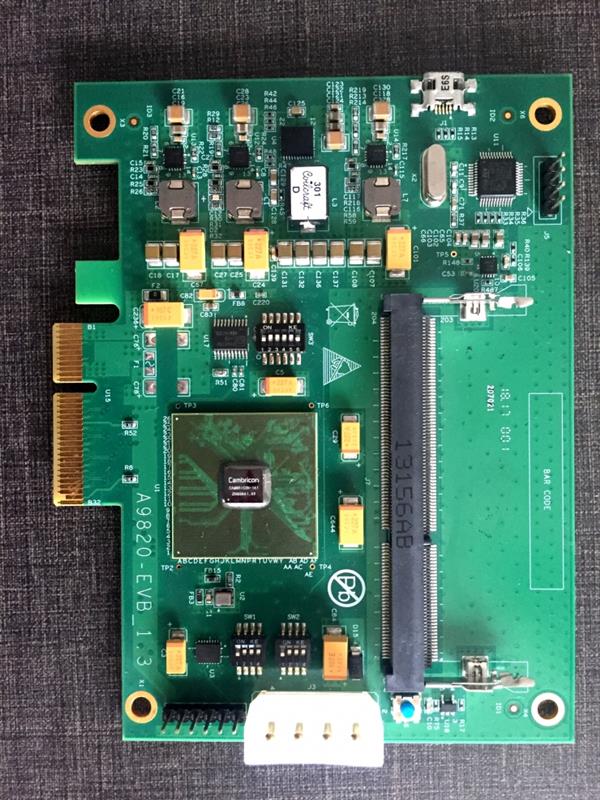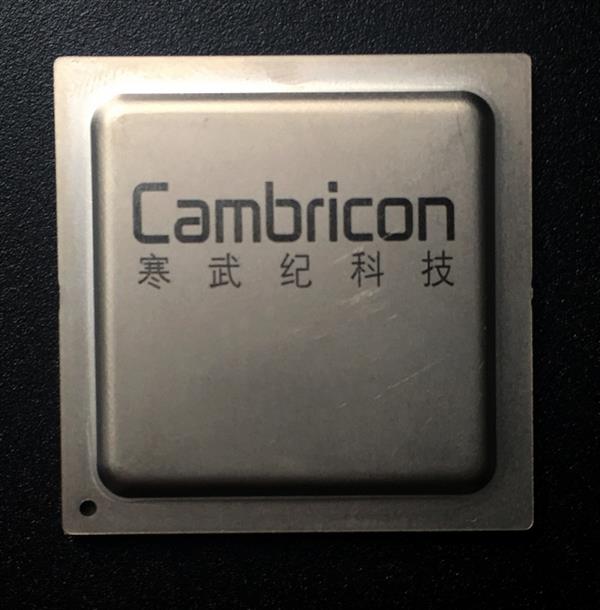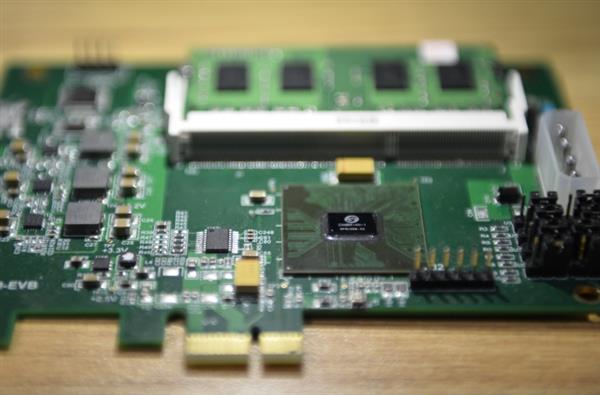A major development has just been announced on Friday: Cambricon, a leading domestic AI chip startup, successfully closed its Series A funding round with a total of $100 million. This marks a significant milestone in the company's journey and highlights its growing influence in the global AI industry.
What stands out even more than the impressive funding amount is the list of investors involved in this round. The key players include SDIC Venture (a subsidiary of the State Development & Investment Corporation), Alibaba, Lenovo, National Investment, China Turing Join, as well as several other prominent venture capital firms that had previously participated in the pre-A round. These investors have shown strong confidence in Cambricon’s potential, continuing to support the company through this critical phase of growth.
We reached out to Cambricon for confirmation, and they confirmed that the company has officially become the first unicorn startup in the global AI chip industry. This achievement underscores their rapid progress and market recognition.

Cambricon board card
As the first AI chip company in the world to achieve mass production of physical chips, Cambricon made its mark in 2016 with the release of the "Cambricon 1A" deep learning processor. When running mainstream AI algorithms, it outperforms traditional processors in both performance and power efficiency.
Founded by Professor Chen Tianshi, who has spent over a decade researching processor architecture and artificial intelligence, Cambricon has quickly risen to prominence. Professor Chen is a renowned young scientist, having received numerous awards such as the National Natural Science Foundation of China’s “Youqing†Award, the CCF-Intel Young Scholar Award, and the Chinese Academy of Computers’ Excellent Doctoral Distinguished Award.
Additionally, Cambricon was incubated by the Institute of Computing Technology at the Chinese Academy of Sciences. The institute not only provided initial angel investment but also continues to offer long-term support and technical input, playing a crucial role in the company’s early development.
To celebrate this milestone, Cambricon’s CEO, Chen Tianshi, gave an exclusive interview with Leifeng Network. Below is a summary of the conversation:
Q (Leifeng Public Account): First of all, congratulations on completing the Series A financing. This is the largest round of funding in the AI chip sector so far. Some people say you’ve now become a new unicorn in this field. Can you share some details about this round of financing?
Chen Tianshi: AI chips are considered the “heavy industry†of the entire AI ecosystem. They require substantial investment. At the same time, AI chips play a vital supporting role in the broader AI industry. Cambricon’s leadership in this space has given investors and the market confidence in our future growth.

Cambricon chip
Q: What were the key timing factors behind this financing? Last August, you completed a Pre-A round, and then released the “Cambricon 1A†chip three months later. Is there a connection between these two events? And after this Series A round, will Cambricon make any major moves soon?
Chen Tianshi: We have conducted multiple rounds of financing. In the first half of last year, we launched the company and raised funds in the angel round. This year, we completed the Series A round. Financing is directly tied to our development. Without the angel funding, we wouldn’t have been able to commercialize quickly or industrialize our research results. The support from the Chinese Academy of Sciences has also been crucial. This Series A round aims to bring us even more advanced products to the market.
Q: At the end of last year, you mentioned that the cycle from R&D to mass production and commercialization takes years. You said that people would see Cambrian technology in the market next year, including in smartphones, security monitoring devices, and cloud servers. Can you share any recent updates on this?
Chen Tianshi: Many in the industry are very interested in our products. Please stay tuned—we’re working hard to bring them to market soon.

Cambricon board card
Q: As a startup focused on AI chips, how do you see the role of AI chips within the broader chip system? Should they be more general-purpose like GPUs, specialized like TPUs, or should they build on FPGA platforms and target specific scenarios? Could you briefly explain your future development path for AI chips?
Chen Tianshi: With the shift from the information age to the intelligent era, AI chips will become essential for smart computing. Deep learning requires high-performance computing resources, and while GPUs are currently the mainstream, they weren’t designed specifically for AI, which limits their efficiency. FPGAs can be reprogrammed quickly but still lag behind dedicated AI chips in speed and energy efficiency. Many companies and research institutions are also developing ASICs for deep learning, like Google’s TPU.
The ideal AI chip should be a versatile processor capable of handling various modalities—such as voice, text, images, video, and natural language processing—while being significantly more efficient than CPUs and GPUs. To achieve this, we need a new set of AI instructions that allow flexible processing and support a wide range of algorithms. Last year, we proposed the first international AI instruction set, marking an important step in this direction.
Q: Developing chips is a costly endeavor. The semiconductor industry has long been dominated by Silicon Valley giants. From the perspective of national technological advancement, how do you think China can achieve a “turning point†in the AI chip sector?
Chen Tianshi: The success of a chip depends not only on its performance but also on its ecosystem. In the past, hardware and software ecosystems were built around ARM and x86 instruction sets. Without following these standards, it’s hard to gain traction in the market. However, in the coming intelligent era, the landscape may change, and new AI ecosystems could emerge.
China has the largest AI market, and companies like Cambricon have developed strong technologies. This gives us the potential to reshape the global AI ecosystem. The core of this transformation lies in the AI instruction set. Without it, standardizing AI chips and enabling communication between AI software and hardware becomes impossible. That’s why we proposed the first international AI instruction set.
If we want to strengthen national technological power, we must guide and standardize the industry, establishing a domestic AI instruction set as the industry standard. Once this is in place, China may have the opportunity to lead the global AI industry.
To use these connectors, the ribbon cable is inserted into the Ribbon Connector and the connector is then plugged into the Ribbon Connector on the circuit board. The connectors are designed to provide a secure and reliable connection that can withstand repeated insertions and removals.
Overall, the 2.54mm Ribbon Connectors are an essential component in many electronic devices that require a reliable and secure connection between the ribbon cable and the circuit board.
2.54Mm Ribbon Connector,Pressure Welding Bar Connector,Pressure Welding Bar Connectors,Welding Bar Connector
YUEQING WEIMAI ELECTRONICS CO.,LTD , https://www.wmconnector.com